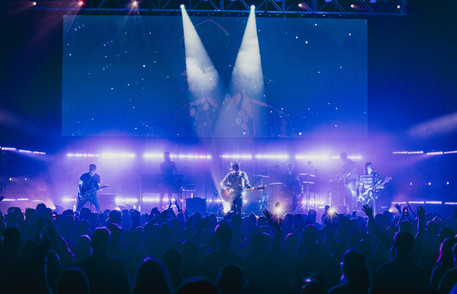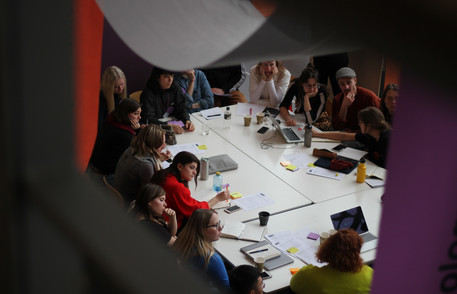If you want to learn to collaborate about design
In late summer when we were still able to meet and enjoy our lunch in the school canteen in Kolding, I joined three of our teachers from our Industrial Design programme at their table. Apart from discussing car designs (yes cliché, the teachers were male), I asked them what in fact it is you learn as a student at Design School Kolding. Are there any truly extraordinary skills and competences that you acquire?
They thought about it for a while and then replied: “It’s probably that our students learn to work together on projects. At least that’s the feedback we’re getting: that our students are especially skilled at engaging in project work but also at managing projects. We teach them to have a holistic approach and to work together in cross-disciplinary teams. Therefore many of our students become project managers.”
”Really!”, I exclaimed. Probably sounding a bit too enthusiastic. Yet, the cause of my enthusiasm was that indeed these are the very competences, which have been identified as the gold of the future. Studies show that over the years, the ability to collaborate, to show empathy when engaging with others and work together have increasingly become the most sought-after competences in the job market.
Naturally I also recognize this from my position as researcher; the realisation that more often than not, huge and complex research problems require researchers to work together in large teams. We see it in large companies as well: designers working in teams, sometimes explicitly wanting to break with the notion of that great one-of-a-kind individual who creates everything in isolation from others. Even the greatest of creators needs others, as sociologist Bourdieu once noted. Somehow we just tend to erase the presence of others from the narration of creation and creativity.
What is interesting is also that the ability to collaborate, to lead others and to engage in communities is also highly relevant outside the classic design industry. The ’we’ is an important part of the vision that we and I have for our school in Kolding. It’s an educational philosophy, and it’s a way of being together. These are big words, but as the three teachers said during our lunch, this is deeply rooted in the way we teach, and conduct research for that matter, which often builds on co-creation. It’s about creating a space where you can grow from diversity and into shared visions, but where you first and foremost learn what it means to work with fellow students, teachers, researchers and the companies and organisations, which we involve so actively in our teaching.
This helps us to become the design school in Denmark with the lowest unemployment rate among our graduates. For our designers who graduated in 2016, the unemployment rate in 2018 was just 21 per cent. This is the lowest it has been in many years, and we believe we can bring it down even further in the years ahead. Because it’s best to change the world committed and together with others.
We are, as we like to say, the world’s smallest design university. But this is to our advantage when the future calls on us to connect with others in so-called agile and flexible formats. And yes, this also means that we have a great Friday Bar and a very active and influential student organisation. Come to Kolding and see!

